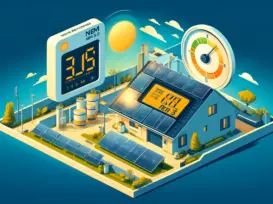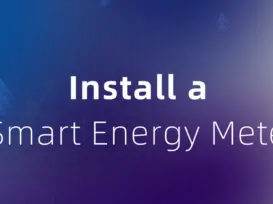Grus Home Energy - battery storage
The Future of Energy: Innovations in Battery Storage
Battery storage technology is revolutionizing the way we generate, store, and distribute energy. With the increasing demand for renewable energy sources such as solar and wind power, the need for efficient and reliable energy storage solutions has never been greater. Batteries are playing a crucial role in enabling the transition to a cleaner, more sustainable energy future.
One of the key benefits of battery storage is its ability to store excess energy generated from renewable sources during times of low demand, and then release it when needed. This helps to balance the grid and reduce the reliance on fossil fuel-powered plants. Battery storage systems can also provide backup power during outages, ensuring a reliable source of electricity for critical infrastructure and households.
Advancements in battery technology have led to improvements in efficiency, reliability, and cost-effectiveness. Lithium-ion batteries, for example, are widely used in electric vehicles and residential energy storage systems due to their high energy density and long cycle life. Other promising technologies, such as flow batteries and solid-state batteries, are also being developed to address specific challenges and enhance performance.
In addition to improving existing battery technologies, researchers are exploring new materials and designs to further enhance energy storage capabilities. For instance, researchers are investigating the use of nanomaterials, such as graphene and carbon nanotubes, to increase energy density and charge/discharge rates. Other research efforts are focused on developing solid-state electrolytes to improve safety and longevity.
As battery storage technology continues to evolve, it is becoming increasingly integrated into the electricity grid and enabling new applications. Energy storage systems are being deployed at utility-scale to provide grid stability, frequency regulation, and peak shaving services. At the same time, behind-the-meter battery systems are being installed in homes and businesses to reduce electricity bills and increase energy independence.
Furthermore, battery storage is playing a critical role in enabling the adoption of electric vehicles (EVs) and supporting the growth of the transportation sector. EV batteries are not only powering vehicles but also serving as mobile energy storage units that can be utilized to provide grid services or support renewable energy integration. Vehicle-to-grid (V2G) technology is being developed to enable bidirectional energy flow between EVs and the grid, creating a more flexible and resilient energy system.
In conclusion, battery storage is poised to play a transformative role in the energy sector, driving the transition to a cleaner, more resilient, and sustainable energy future. With ongoing advancements in technology and increasing deployment of energy storage systems, we are moving closer to a world where reliable, affordable, and carbon-free energy is within reach.
©2025 All Rights Reserved. Grus IoT Co.,Ltd.

